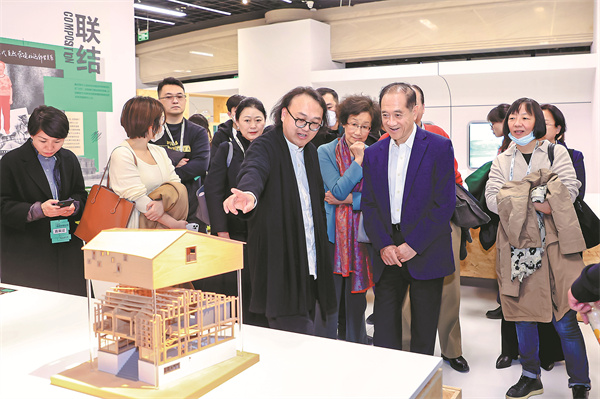

The old buildings were revamped into venues such as an art center, a bookshop, a community center, an exhibition hall and a renewed outdoor stage.
Zuo led his team to restore the local culture, for example, by inviting artists to create woodcarving and animation about the "seven sages of the bamboo grove", which describes the celebrated scholars who lived in the region during the 3rd century.
As for the village population, the team focused on the elderly and children. The village used to have a troupe performing the local art form Huaibang Opera that was disbanded more than 40 years ago. The troupe was reestablished with local farmers who performed along with renowned musicians and had their songs recorded and published as an album by Modernsky Entertainment, a major record company in China.
Zuo's team worked with art and academic institutions to provide the local children a series of art, film, dance and music lessons. A film festival was also hosted in the village, screening short films shot entirely by the children.
"It will take time for the village to enrich itself and become more appealing for tourists," Zuo says. "Our focus is cultural development. From the beginning, we decided to believe in the power and value of culture."
Meanwhile in Shanghai, an organization called Clover Nature School has been introducing more nature into the metropolis by establishing small gardens and vegetable plots.
Liu Yuelai, associate professor of Tongji University and co-founder of the organization, says these gardens serve to involve citizens in the creation and management of public spaces.